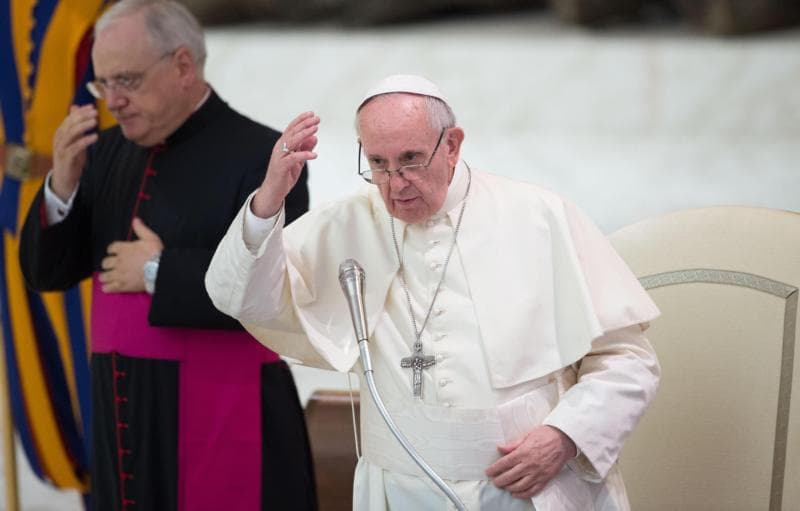ROME – Pope Francis’s international Council of Cardinals — the so-called C9 — is nearly done with its work of advising the pope on a major reform of the Vatican bureaucracy, the secretary of the council said.
Bishop Marcello Semeraro of Albano, secretary of the council, told Vatican Radio September 11 that “as far as the reform process of the Roman Curia is concerned, it is even more than three-quarters of the way there — it is almost complete.
“It is nearly complete at the level of proposals made to the pope,” he said.
The Council of Cardinals was meeting at the Vatican September 11-13. Francis, who returned from his visit to Colombia September 11, did not attend the first day’s meeting.
Semeraro told Vatican Radio of the council’s work in advising the pope on the reform of the Vatican’s organization and church governance, describing it as a three-step process of “listening” to the contributions from the bishops, the Roman Curia and “many people who have written,” reflecting on those proposals and checking them over.
“Listening, reflecting, checking and then making a proposal to the pope” because the Council of Cardinals does not issue a decree; “the Council of Cardinals proposes to the pope,” he said.
Throughout their meetings, he continued, Francis takes part “primarily by listening” and “intervenes when he recounts his personal experiences when he was archbishop of Buenos Aires, Argentina, or of current situations in the life of the church.”
RELATED: More and more, Parolin’s the face of authority in Francis’s Vatican
The work of the council is not only dedicated to reforming the Roman Curia but to informing, advising and collaborating with the pope concerning various situations in the church, Semeraro said.
One example, he added, was to discuss “the very painful reality of the abuse of minors.
“This, in itself, is not part of the reform of the Roman Curia. Yet, the pope has decided to listen to the council, too, about these steps. And, when it comes to clarifying or intervening, the pope intervenes but with great discretion. He mostly listens,” Semeraro said.
Regarding the time frame of the reform, the Italian prelate said the final proposals dealing with all the dicasteries “will be more or less complete in a few months” and that it will be up to the pope “to decide how and when to implement them.
“Right now the pope has preferred a gradual implementation, as well as a sort of breaking-in period. In some cases, the pope has already intervened to make corrections because in passing from theory to practice, needs for correction have emerged,” Semeraro said.














